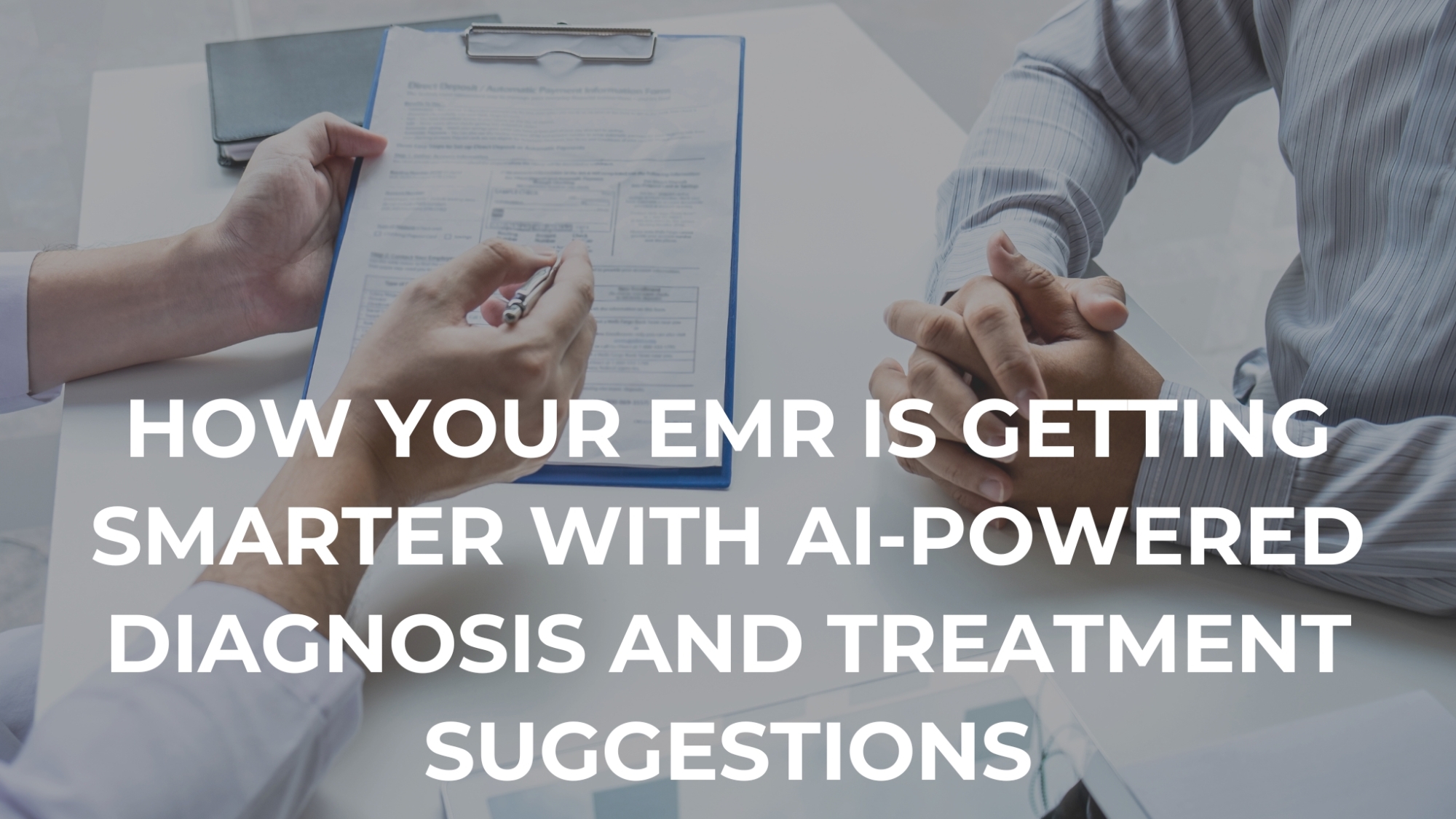The days of flipping through medical textbooks for diagnoses are fading. Electronic Medical Records (EMR) are becoming increasingly sophisticated, thanks in part to Artificial Intelligence (AI). This blog post dives into how AI is transforming EMRs to suggest diagnoses and treatment plans, ultimately aiding doctors in providing better patient care.
AI's Powerhouse: Big Data and Machine Learning
EMRs are treasure troves of patient data, including medical history, lab results, imaging scans, and treatment records. AI, specifically machine learning algorithms, are trained on this vast amount of data. These algorithms learn to identify patterns and relationships between symptoms, diagnoses, and treatment outcomes.
AI in Action: Suggesting Diagnoses
Imagine a patient presenting with a cough and fever. The AI in your EMR can analyze their data, comparing it to anonymized data sets of millions of past cases. It can then:
- Identify Similar Cases: The AI can quickly surface cases with similar symptoms, suggesting potential diagnoses the doctor might have missed or needed confirmation for.
- Prioritize Possibilities: Based on the patient’s specific data (age, medical history, etc.), the AI can prioritize the most likely diagnoses, saving the doctor valuable time.
- Flag Rare Conditions: AI’s ability to analyze vast datasets can even identify rare conditions that might be easily overlooked.
Beyond Diagnosis: AI and Treatment Planning
AI doesn’t stop at suggesting diagnoses. It can also be a valuable tool in treatment planning:
- Evidence-Based Recommendations: AI can analyze published medical research to suggest treatment options supported by the latest medical evidence.
- Personalized Medicine: By factoring in the patient’s unique data, the AI can recommend treatment plans tailored to their specific needs and potential responses.
- Predicting Outcomes: Some AI systems can predict how a patient might respond to different treatment options, allowing doctors to choose the most likely course for success.
AI: A Valuable Assistant, Not a Replacement
It’s important to remember that AI is a powerful tool, but it’s not a replacement for a doctor’s expertise and judgment. Here’s why:
- AI Relies on Data Quality: The accuracy of AI suggestions depends on the quality of data within the EMR. Incomplete or inaccurate data can lead to misleading results.
- Doctor’s Experience is Crucial: AI can’t replicate a doctor’s experience and intuition. Doctors use their knowledge and understanding of the patient’s individual case to make the final decisions.
- Transparency and Explainability: While AI suggests options, it’s crucial for doctors to understand the reasoning behind those suggestions. This transparency fosters trust and allows doctors to adapt the recommendations to the specific patient.
The Future of AI in EMRs
The integration of AI in EMRs is still evolving, but the potential is vast. We can expect to see further advancements in:
- Natural Language Processing (NLP): AI with NLP capabilities could analyze doctor’s notes and integrate them with patient data for a more holistic view.
- Real-Time Analytics: AI could analyze real-time patient data (like vital signs) to identify potential complications and suggest interventions.
- Precision Medicine: AI could personalize treatment plans even further, considering a patient’s genetic makeup and other factors.
Conclusion
AI is transforming EMRs from data repositories into intelligent assistants. By suggesting diagnoses, treatment options, and even predicting outcomes, AI empowers doctors to provide more efficient and effective care. While AI is a powerful tool, it’s important to remember that it complements, not replaces, a doctor’s expertise and judgment. As AI technology continues to develop, the future of EMRs promises even greater advancements in patient care.


